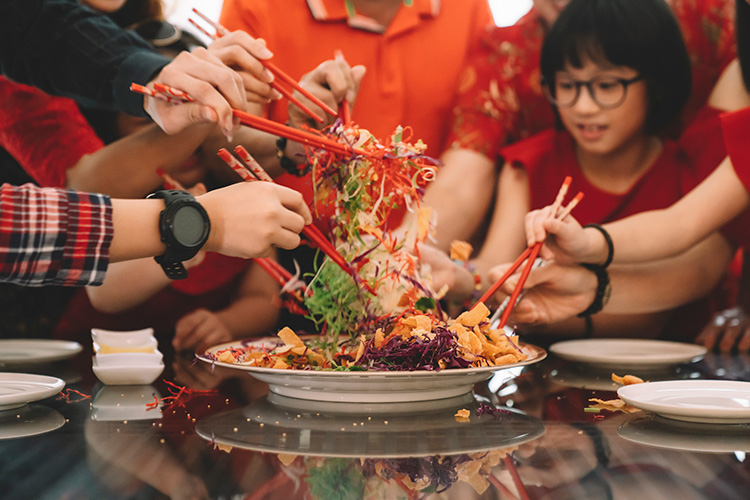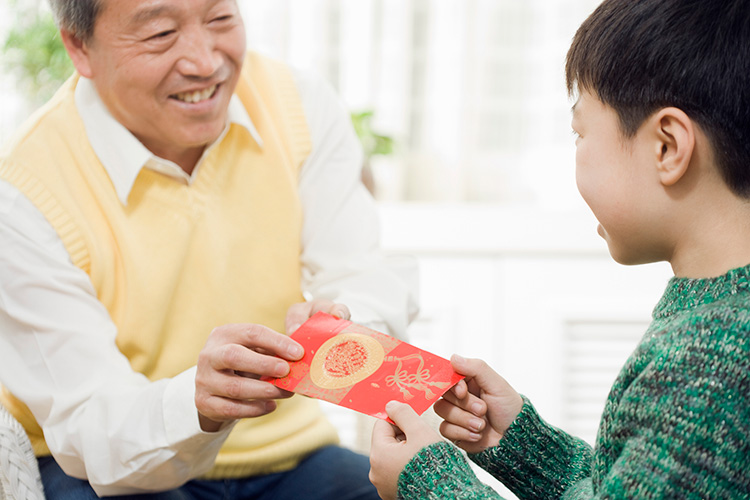
Celebrating the Lunar New Year
Lunar New Year is one of the most important celebrations of the year among East and Southeast Asian cultures, including Chinese, Vietnamese and Korean communities. The New Year celebration in 2024 begins on February 10 and is usually celebrated for multiple days. China’s Lunar New Year is known as the Spring Festival or Chūnjié in Mandarin, while Koreans call it Seollal and Vietnamese refer to it as Tết. The Lunar New Year is the most celebrated and longest of all Asian festivals and is observed by millions of people worldwide.
Tied to the lunar calendar, the holiday began as a time for feasting and to honor household and heavenly deities, as well as ancestors. The New Year typically begins with the first new moon that occurs between the end of January and spans the first 15 days of the first month of the lunar calendar—until the full moon arrives.
Each year in the Lunar calendar is represented by one of 12 zodiac animals. The 12 zodiac animals are the rat, ox, tiger, rabbit, dragon, snake, horse, sheep, monkey, rooster, dog and pig. In addition to the animals, five elements of earth, water, fire, wood and metal are also mapped onto the traditional lunar calendar. Each year is associated with an animal that corresponds to an element. The year 2024 is stated to be the year of the dragon. If you are born in the year of the dragon, you are believed to be ambitious, energetic, and charismatic. You are considered a natural leader and unafraid to take risks; having a magnetic personality in social and professional circles. The last year of the dragon was in 2012.
Foods and Traditions to celebrate the Lunar New Year

Each culture celebrates the Lunar New Year differently. These celebrations symbolize prosperity, abundance and togetherness. Cultures have different ways of greeting each other during the holiday. English translations for these greetings are “New Year Goodness” or “Good New Year” and “Happy New Year”.
Delicious food is made and served during this celebration. It is traditional to serve long noodles, symbolizing a long life. Chinese Dumplings is another popular recipe, symbolizing good luck and wealth. Families wrap them up and eat them as the clock strikes midnight.
Elders give out red envelopes or red packets to children containing money. This is to symbolize the elders hoping to pass on a year of good fortune and blessings. Another version is given by the younger generation to their elders as a blessing of longevity and a show of gratitude.

Luck in the New Year
“Good Luck” is also a common theme of the New Year. People clean their homes and open their doors to let good luck enter. According to tradition, no one should pick up a broom in case you sweep the good luck from the New Year out of the door!
There are a few things that should not be done during the Lunar New Year. Here are a few examples:
- No breaking objects – be apart from family
- No washing Hair – wash away wealth
- No Lending or Borrowing – suffer financial loss
- No Scissors – squabble with people
- No taking medicine – sick all year round
Words with negative meaning should be avoided in daily conversation; such as running out, death, ghost, killing, sickness, pain, losing and poverty. These words should be replaced with words that are positive and uplifting during the whole of the Lunar New Year.
During the 2024 Lunar New Year; take some time to see what your area offers as ways to celebrate this holiday. Weather permitting, see what activities are offered, such as parades, fireworks, craft shows, dance demonstrations and vendors. The links provided offer you a resource to learn more about this exciting holiday. As the residents and team members in our communities love to enjoy new and exciting ways to connect and celebrate unique holidays, we hope you enjoy learning more about the Year of the Dragon and take the time to celebrate the Lunar New Year.
About LaJeune Adams
PSL’s Cultures and Values give assurance of our organization’s commitment to diversity, equity and inclusion, through ensuring that all stakeholders feel that they belong. By lifting up voices and people, we will create an organization where all stakeholders feel that they are of value. As part of this commitment PSL formed Culture Champions within each community and location within the organization. Culture Champions are PSL representatives empowered with leading the movement of living and teaching our values while embracing DEI initiatives and encouraging others to do the same. As the Corporate Director of Education and Development and DEI Officer, LaJeune Adams is one of the PSL leaders that supports and works directly with the Culture Champions. LaJeune has worked with Presbyterian Senior Living for over 16 years in the roles of Human Resources Manager and Area Human Resources Director prior to her current role.



